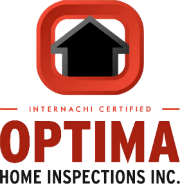Home inspections are a crucial step in the home buying process. If you’re considering purchasing a property in Poughkeepsie, NY, understanding what to expect from a home inspection can help ensure that your investment is sound. This guide will walk you through the essentials of a typical home inspection, helping you make informed decisions.
The Importance of Home Inspections
Understanding the significance of a home inspection can set you up for success. It’s not just about identifying current issues but also about getting a sense of potential future problems. Home inspections safeguard your investment and provide peace of mind.
Home inspections act as your property’s health checkup, revealing the unseen facets that might not be obvious at first glance. The value of knowing potential issues beforehand cannot be overstated, as it allows you to negotiate or prepare financially for future repairs. In an area like Poughkeepsie, where historic homes are common, spotting issues like outdated wiring or old plumbing systems is crucial for safety and efficiency. By investing time and resources in a thorough inspection, you’re affirming the longevity and stability of your home life.
What Does a Home Inspector Look For?
During a home inspection, a certified inspector examines several key areas of the property, including the roof, foundation, plumbing, electrical systems, and more. We’ll take a closer look at each aspect, so you know exactly what to expect.
One critical area that inspectors assess is the plumbing system. They check for leaks, water pressure, and the proper function of all fixtures. Plumbing issues can often be hidden, lurking behind walls and under floors, so an inspector’s expertise is invaluable in this realm. They also evaluate the roof’s condition, looking for signs of wear or damage that could lead to costly repairs down the line. Additionally, an inspection covers the foundation, ensuring there are no cracks or signs of shifting that might indicate structural problems. Understanding these elements can save you from future headaches and financial strain.
Besides the basic structural components, inspectors also scrutinize the electrical system to ensure that it adheres to current safety standards. This involves checking outlets, circuit panels, and any visible wiring issues. An up-to-date electrical system not only prevents potential hazards but also boosts efficiency. Furthermore, heating, ventilation, and air conditioning (HVAC) systems are evaluated for performance and age, determining their potential need for repair or replacement. Ultimately, inspectors help uncover problems that might be hiding out of sight, emphasizing the importance of a comprehensive examination.
How to Prepare for Your Home Inspection
Preparation is key. Ensure all areas of your home are accessible and keep in mind any specific concerns you want the inspector to focus on. This section provides tips on how to make the most of your inspection day.
To make the inspection process as smooth as possible, ensure that all entrances, basements, attics, and crawl spaces are accessible. Clear the area around the furnace, water heater, and under sinks to allow for an unhindered examination. Preparing a list of concerns beforehand is also beneficial, as it allows you to communicate any specific issues you want the inspector to address. This proactive approach will help you fully utilize the inspection and address potential problems head-on.
Another tip is to attend the inspection yourself. Being present allows you to ask questions in real-time and see firsthand any issues that arise. It also fosters better understanding when reviewing your report later and ensures that nothing is lost in translation between what the inspector observes and what you understand. This hands-on engagement can demystify many aspects of home inspection for first-time buyers in Poughkeepsie, offering you valuable insights and building your confidence.
Understanding the Home Inspection Report
After the inspection, you’ll receive a detailed report outlining the inspector’s findings. Learning how to interpret this report is crucial to making informed decisions about your purchase. We’ll guide you through the typical components of a home inspection report.
The inspection report is structured to provide a comprehensive overview of the home’s condition. It highlights major issues, minor defects, and areas needing routine maintenance. Major problems might include things like significant roof damage or failing HVAC systems, which can be costly if not addressed immediately. Minor defects may cover things like a leaking faucet or a loose door handle, which are easily remedied yet can add up over time if neglected. Routine maintenance suggestions might include regular cleaning or painting to preserve the home’s condition.
Each section of the report often includes photographs for visual reference, providing a clearer understanding of what each noted issue looks like. This visual aid is especially useful for homeowners not well-versed in technical terms or construction details. Reports also offer recommendations for potential experts you might consult for serious issues, and advise a timeline for when repairs or maintenance should ideally be completed, equipping you with detailed knowledge for future decisions.
Post-Inspection Steps: Negotiations and Repairs
Once you have your report, it’s time to decide on the next steps. Whether it’s negotiating repairs with the seller or walking away, understanding your options can be crucial. This section will help you navigate the post-inspection process smoothly.
After reviewing the report, the next move often involves negotiating with the seller. If significant issues are uncovered, you might request the seller to repair them before closing the deal, or you could negotiate a lower price to account for future repairs you’ll need to handle yourself. Knowing how to leverage this information can enable you to secure a better deal on your new home, saving you money and stress in the long run.
Not every issue found during an inspection requires negotiation, but prioritizing what’s crucial to address is vital. Major systems like plumbing or roofing often take precedence due to their potential impact on home safety and functionality. Conversely, minor repairs could be addressed later at your own pace. Working closely with your real estate agent during this phase is also helpful—they can offer invaluable advice and assist in crafting a productive negotiation strategy that respects both your needs and the seller’s position.
Wrapping Up Your Home Inspection Journey
A home inspection in Poughkeepsie, NY, can provide you with important insights into the property’s condition, ensuring you’re making a wise investment. By knowing what to expect, you can approach the home buying process with confidence and peace of mind.


